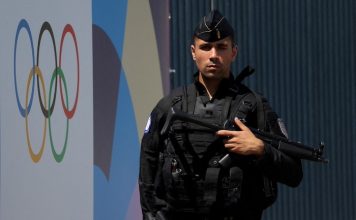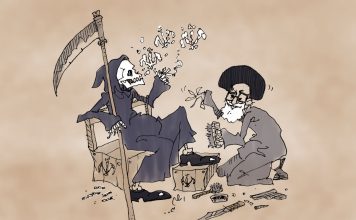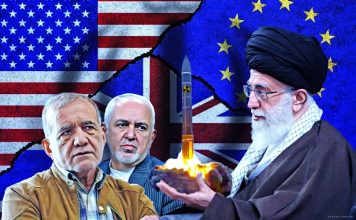The late Mohammad Reza Shah Pahlavi (1919-1980) kept two people out of prison and saved their lives, namely the former Iranian Prime Minister Mohammad Mossadegh (1882-1967) and the founder of the Islamic Republic Ayatollah Ruhollah Khomeini (1902-1989).
Mr. Mossadegh and Ayatollah Khomeini clashed with the Shah during his reign. However, while Mossadegh was always grateful to the Shah for rescuing him from prison, Khomeini held a deep-seated tribal grudge against the monarch, which fueled his thirst for vengeance.
Political analysts, sociologists, and psychologists have delved into the lives of these historical figures to gain a better understanding of their characters, motives, and actions. However, many people in Iran disapprove of critical examinations of revered figures like Mossadegh, whom they have dubbed “great” and a “pioneer.” They believe that a national hero can do no wrong.
Mossadegh was human and made mistakes like the rest of us. Modern societies exercise critical judgment to question everything, even the actions of ancient prophets. So we should not view our politicians and statesmen as infallible prophets.
The movement to nationalize the Iranian oil industry started before Mossadegh became Prime Minister (in office 1951-53). It dates back to Iran’s oil concession to Russia. Talks over limiting the control of the Anglo-Persian Oil Company (APOC) started in the late 1940s.
The company changed its name to the Anglo-Iranian Company (AIOC) in 1935 and was named the British Petroleum Company (BP) in 1954.
On Oct. 18, 1948, the government of Prime Minister Abdolhossein Hazhir (assassinated while serving as Minister of Royal Court in 1949, aged 47) issued a statement, demanding “the AIOC to honor the rights of Iranian people.”
Subsequently, the Supreme Planning and Budget Council ratified the AIOC’s charter. Soon after, 11 Majlis (Iranian Parliament) deputies submitted a proposal to nationalize the Iranian oil industry.
In an interview with the New York Times nine months earlier, the Shah had said: “Iran will not give foreign countries the right to drill oil any longer.” On the same day, the 15th Majlis unanimously ratified the bill to nationalize the Iranian oil industry. Prime Minister Hossein Ala (in office 1951 and again from 1955 to 1957) led the government.
Mohammad Reza Shah asked Mossadegh to form a government in April 1951. Shah signed the legislation to nationalize the oil industry after it was passed into law by the Majlis. In effect, the Iranian government unilaterally canceled the contract with the AIOC, which marked the start of the dispute with the British company.
[aesop_image img=”https://kayhanlife.com/wp-content/uploads/2020/08/ShahSorayaPM.jpg” panorama=”off” credit=”The Shah speaking with Prime Minister Mohammad Mosaddegh, 1951. ” align=”center” lightbox=”on” captionsrc=”custom” captionposition=”left” revealfx=”off” overlay_revealfx=”off”]
Mossadegh was a seasoned politician and enjoyed enormous popularity. Also, many of the Majlis deputies were his allies. He, however, repeatedly threatened to resign. Mossadegh considered himself the sole representative of the “national will,” despite being nominated by the Majlis and approved by the Shah for the prime minister’s office.
Mossadegh accused the Majlis of acting against the public interest when it refused to back him, even though some 80 percent of the deputies were members of the National Front of Iran (founded by Mossadegh in 1949).
In a letter to the Majlis dated Jan. 6, 1953, Mossadegh said: “The government does not plan to shut the national assembly.” However, in a radio address on July 27, Mossadegh said he planned to hold a referendum on whether to dissolve or keep the parliament. Despite fierce opposition from the minority faction in the parliament, Mossadegh’s government held a referendum on Aug. 3.
On Aug. 13, the Shah replaced Mossadegh and appointed Brigadier General Fazlollah Zahedi as the prime minister of Iran. The Shah sent letters to Mossadegh and Prime Minister Zahedi (in office from August 1953 until April 1955), informing them of his decision.
The government asked the army to deploy several tanks around Sa’dabad Palace, the prime minister’s residence, as a precautionary measure.
The next day, Mossadegh announced that officers from the royal guards had staged a military coup d’état at 11:00 pm the night before, adding that the head of the royal guards had been arrested. However, Mossadegh did not mention the dismissal letter he had received earlier from the Shah.
Mohammad Reza Shah left the country at nine o’clock the next morning. Before his plane left Ramsar airport (in the northern province of Mazandaran), the Shah said that he had removed Mossadegh as the prime minister for violating the constitution. The Shah added he was leaving Iran temporarily to avoid a civil war and bloodshed.
In a radio broadcast from London, the Shah explained that he had removed the prime minister for abuse of power and calling an illegal referendum. Mossadegh dissolved the parliament on the same day. He also ordered the military to lock up and guard all royal palaces.
On orders from Mossadegh’s government, the military arrested many officials at the royal court. Mobs pulled down statutes of the Shah at Baharestan and Sepah Squares in Tehran. The situation in the country quickly deteriorated after the Shah left Iran, and Mossadegh dissolved the parliament.
Before returning to Tehran, the Shah said: “The Iranian oil industry has been nationalized, and the AIOC has ceased to exist as a foreign entity. Iranian oil has been nationalized and will remain like that.”
The Shah and Mossadegh were patriots who loved Iran. They both aimed to protect Iranian interests. Each believed they could serve the country better than the other. They both thought they represented the will of the nation. That is why Mossadegh described his removal from the prime minister’s office as a “coup d’état.” The Shah saw Mossadegh as a rival who had pledged his loyalty to the monarchy but harbored “dangerous” ambitions.
The coup d’état started with Mossadegh dissolving the Majlis, which prompted the Shah to remove him from the office. Prime Minister Mossadegh did not honor the Shah’s decision and refused to give up his post as the prime minister. The Shah did not confront him and left the country instead. Confident that people would support him, Mossadegh staged a “coup” but was defeated. Knowing that foreign powers would back him, Shah staged a “coup” and was victorious.
[aesop_image img=”https://kayhanlife.com/wp-content/uploads/2020/08/shah-mossadegh.jpg” panorama=”off” credit=”The Shah shaking hands with Mohammad Mosaddegh. ” align=”center” lightbox=”off” captionsrc=”custom” captionposition=”left” revealfx=”off” overlay_revealfx=”off”]
Mossadegh believed that many influential people had conspired against him.
He wrote: “Some people in the royal court, many army officers and several members of the National Front had conspired to destroy me. They made their move on Feb. 28. Members of the political elite who claimed I had plotted to send the Shah to exile gathered in front of the Royal Palace to destroy [kill] me. If they had been successful, the clergy who had come to the Palace on Feb. 28 would have prayed over my corpse. I would have received a state funeral, given that I am the minister responsible for national defense, and those who had committed the crime would have been punished, so no one would suspect that foreign powers had a hand in the treacherous plot.”
The Shah and Mossadegh could not both be winners, but it would have been in the country’s best interest if they had reached a compromise. They fought instead, and Shah was the winner of the “coup d’état.” Speeches by these two men are the best sources of information that can help us analyze and understand the “coup d’état.” Their comments show that both men made mistakes. They laid the groundwork for staging a “coup d’état” against each other.
Both men crossed the line. The Shah did it by removing Mossadegh, who was a popular prime minister and Mossadegh by dissolving the Majlis and acting unilaterally. Both men were entrenched in their positions. While Shah adopted a positive and conciliatory approach to nationalizing the oil industry, Mossadegh was pessimistic and confrontational. Shah disdained Mossadegh’s political tactics, including threatening to resign. Mossadegh, however, enjoyed using the threat of resignation as a political tool.
Mossadegh and the Shah should have come to an understanding before trying to deal with the U.S. and Britain. They should have put the interests of the country ahead of their own. In the years that followed, the political Left, liberals, pro-democracy groups, socialists, and nationalists were silenced. The clergy, however, used any religious opportunity to disseminate Islamic propaganda.
The Shah and Mossadegh were two sides of a rare coin. They were among the most prominent political figures in the region. The Iranian nation was the real loser after Khomeini spent this precious currency on establishing a despotic regime.
This article was first published in Kayhan London in August 2004.
This article was translated and adapted from Persian by Fardine Hamidi.








what some consider as the Iranian contemporary history, was it real or a perception? Knowing British & Soviet interest in colonizing Iran for over a century directly or through their Proxies, Was Reza Shah’s alliance with Germany to the benefit of Iranian Nation? Was the Prime-Minster Ghavam’s signing off the northern oil contract to Soviet for the interest of the nation? Why Dr. Mosaddeq made alliance with the Soviet proxy while knowing the strength of the Tudeh party both among the youth & military officers were beyond his own popularity? What is the meaning of the Coup? Weren’t more Tudeh party military officer & Dr. Mosaddeq’s supporters involved in the overthrowing the 2nd Pahlavi? We as a nation have to decide where our interest lays beyond our emotional stage. Non of us can deny the super powers interest in Iran. The question becomes which super power do we think maybe more lenient or aligned with the Iranian interest????